It has become a familiar theme of late: Inequities exist in all aspects of cancer care. Although study after study documents problems with access to care and poorer cancer outcomes among underrepresented groups, less is heard about organized efforts to address these issues. This critical topic was discussed by panelists at the virtual European Cancer Summit. Listeners heard about steps taken by the European Cancer Organisation and other entities, including ASCO, to develop systems for righting these wrongs.
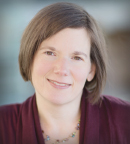
“The theme that social disadvantage is inevitably linked to higher cancer incidence and poorer outcomes is common across settings.”— Katherine Reeder-Hayes, MD, MBA
Tweet this quote
ASCO was included in this European-focused summit because of the strides it has made in this area. As Katherine Reeder-Hayes, MD, MBA, Chair of ASCO’s Health Equity Committee, pointed out: “The exact mechanisms by which social disadvantage is connected to poorer cancer outcomes may vary by geographic location, culture, country, and group, but the theme—that social disadvantage is inevitably linked to higher cancer incidence and poorer outcomes—is common across settings,” she said.
“We have seen that, through determined effort and coordinated policy initiatives, inequalities in cancer care can be reduced, and enormous progress can be made, said Matti S. Aapro, MD, President of the European Cancer Organisation. “The opportunity is there, and it is up to us to seize it by simply following what we know and what has been shown to work: plan, measure, and do!”
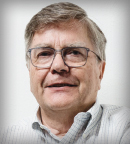
“Through determined effort and coordinated policy initiatives, inequalities in cancer care can be reduced, and enormous progress can be made.”— Matti S. Aapro, MD
Tweet this quote
The needs are urgent. As Robert Greene, of the Patient Advisory Committee, suggested: “The time to combat inequities and disparities in cancer care is now. The Summit is where we can all commit to halting discrimination due to age, sex, gender, level of education, literacy, socioeconomic status, disabilities, and -geography.”
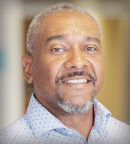
“The time to combat inequities and disparities in cancer care is now.”— Robert Greene
Tweet this quote
The European Cancer Summit, organized by the European Cancer Organisation, was sponsored by its Network on Inequalities and co-chaired by Nicolo Battisti, President-Elect of the International Society of Geriatric Oncology, and Hendrick Van Poppel, MD, Adjunct Secretary General of the European Association of Urology.
Inequality: A Global Problem
One expert on health disparities is Richard Sullivan, MD, PhD, Professor of Cancer and Global Health at King’s College London, Director of the King’s Institute of Cancer Policy, Co-Director of the Conflict and Health Research Group, and Editor-in-Chief of the Journal of Cancer Policy. Dr. Sullivan advocated for a global perspective.
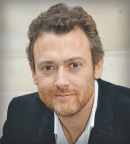
Richard Sullivan, MD, PhD
“It’s been clear that the world is suffering from significant inequalities,” he said. Macroeconomic and macrodemographic drivers, such as huge concentrations of wealth among the few, are further increasing inequalities that are “incompatible with meritocratic values and principles of social justice,” Dr. Sullivan stated.
His solutions included better workforce recruitment and retention, better governance over the delivery of services, and broader incorporation of value-based care. “The reality is that, around the world, we see enormous brain drains. Between 40% and 80% of trained cancer surgeons from low-income settings still migrate to high-income settings…despite a number of different agreements and working solutions put in place,” he indicated.
Regarding governance, Dr. Sullivan pointed out that the delivery of cancer services in high-income countries often encompasses about 300 different forms of legislation. In low- to middle-income countries, this may be as few as 15. Ironically, the introduction of new technology (especially when lacking in evidence of efficacy) can actually drive inequality by being unaffordable.
Value-based care is important for any country; it should not be limited to drug-price controls but should encompass affordable pathways and universal health coverage. “Value-based care is a core solution. Many countries now recognize the importance of looking beyond technologies in delivering equality in care and outcomes,” he explained.
Here, Dr. Sullivan sees some bright spots. For example, “Choosing Wisely” programs are being adopted in other countries. Nevertheless, most countries still have out-of-pocket costs that exceed 20% of the cost of care, he added.
Finally, Dr. Sullivan fears that post-COVID challenges will only worsen inequalities in both high-income and emerging-income economics. This problem may supersede concerns about access to medicines. “All indications are that we will see rapid declines in GDP [gross domestic product] across the globe, and this will put incredible stress on the ability of countries to deliver universal health coverage,” he said. “As GDP goes down, we know that cancer mortality goes up.”
Growing Divide Between Central/Eastern Europe and Western Europe
Masum Hossain, President of Pfizer’s International Developed Markets Division, commented on the growing inequality between Central and Eastern European countries and the countries of Western Europe. Although encouraging advances are being made in some countries—Poland, Ukraine, Croatia, to name a few—more than half of Central/Eastern European countries do not have national cancer control plans in place. For patients, this means lower care standards and Europe’s highest cancer mortality rates, compared with Northern, Southern, and Western countries, he noted.
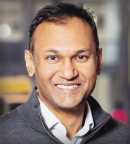
Masum Hossain
Mr. Hossain emphasized the importance of data—not only having them, but organizing them so they lead to better quality decisions. To this end, Pfizer’s CTRL Cancer Initiative has developed unique cancer control “dashboards” for 16 different countries. Dashboards help analyze information that feeds into policy engagement actions, reveal areas for improvement, and serve as benchmarks against which policy development can be monitored in a given country.
Pfizer’s annual CTRL Cancer Summit, which began in 2018, recently issued a four-point call to action, shared Mr. Hossain.
Organizations Must ‘Walk the Walk’
Mr. Greene emphasized that awareness of discrimination or inequality is not enough. What is needed is an understanding of “what the individual patient’s life looks like and a willingness to talk with the patient to understand how the quality of cancer care received is being impacted,” he said.
A few questions, asked to oneself, can be instructive: Do I talk the talk and walk the walk? How well are the groups we are talking about represented within my own organization? The development and execution of plans to eliminate inequalities come after many such questions are answered, Mr. Greene noted.
Fitting Theme by ASCO President
Lori J. Pierce, MD, FASTRO, FASCO, ASCO President and Professor of Radiation Oncology at the University of Michigan School of Medicine, shared ASCO’s focus on ameliorating discrimination and disparities. Dr. Pierce has long had an interest in this topic and chose as her presidential theme, “Equity: Every Patient. Every Day. Everywhere.”
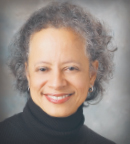
“Equity is a simple term, but it is complicated to achieve because so many factors must be considered to attain an equitable community.”— Lori J. Pierce, MD, FASTRO, FASCO
Tweet this quote
Dr. Pierce began by noting how health states are highly dependent on social determinants of health, which are shaped by “money, power, and resources on local and even global levels.” Numerous factors underlie disparities and often intersect to reinforce each other. For a net positive impact on inequality, intersecting factors must all be understood and addressed, she said.
“Equity is a simple term, but it is complicated to achieve because so many factors must be considered to attain an equitable community,” Dr. Pierce suggested. Society and individuals must confront the forces that are opposing equality of care, such as racism; check their own biases and eliminate them; and be willing to take actions toward equitable care for all, she said.
Under Dr. Pierce’s leadership, the 2021 ASCO Annual Meeting will embed topics related to equity into many different sessions, rather than offer them in stand-alone sessions that often are not typically well attended. “We are going to build as much as we can within major sessions next year,” she said.
ASCO’s Health Equity Committee
These and other efforts are further explained in ASCO’s updated health equity policy statement (August 2020), which sets forth specific recommendations. A concrete strategic plan for the coming years has placed particular emphasis on increasing workforce diversity, building partnerships with communities affected by disparities, addressing institutional discrimination in the oncology field, and increasing awareness and action on equity issues.
Dr. Reeder-Hayes, who is a medical oncologist at the University of North Carolina Chapel Hill, offered a few thoughts as Chair of ASCO’s Health Equity Committee. “There are so many aspects to the problem of cancer care disparities. It feels so large,” she said. “It’s been helpful for us, in starting to move from observation to action, to ask, ‘What facets of this project [tackling inequality] are our responsibility as an organization? What levers do we control?’”
ASCO’s Actions
Among the ways ASCO is fulfilling its pledge to address inequality and discrimination are the following steps:
- Advocating for legislation that facilitates equity of care
- Outreaching to historically Black colleges and universities to increase minority representation in medicine
- Increasing underrepresented minorities on ASCO committees
- Emphasizing care for older adults and residents of rural communities
- Implementing quality initiatives in clinics serving underrepresented minorities
- Increasing travel grants to bring underrepresented minorities to annual meetings
- Taking actions within the Association of Community Cancer Centers to increase minority participation in clinical trials, piloted in oncology practices
- Initiating educational programs on social determinants of health for fellows and early-career oncologists as well as immersive oncology initiatives for medical students.
Finally, as proof of ASCO’s dedication to eliminating inequities, it has fundamentally modified its mission statement to read: “Conquering cancer through research, education, and promotion of the highest quality and equitable patient care.” As Dr. Pierce said: “ASCO is working on so many levels to improve equitable care for all.”
DISCLOSURE: Dr. Reeder-Hayes has received institutional research funding from Pfizer. Dr. Aapro has served as a consultant or advisor to Amgen, Daiichi Sankyo, Fresenius Kabi, G1 Therapeutics, Genomic Health, Helsinn Healthcare, Lilly, Merck, Merck KGaA, Novartis, Pfizer, Pierre Fabre, Sandoz, Tesaro, and Vifor Pharma; has served as an institutional consultant or advisor to Bristol Myers Squibb and Roche; has participated in a speakers bureau for Accord Research, Amgen, Biocon, Dr. Reed, Genomic Health, Helsinn Healthcare, Mundipharma, Novartis, Pfizer, Pierre Fabre, Roche, Sandoz, Taiho Pharmaceutical, Tesaro, and Vifor Pharma; has received research funding from Sandoz; and has received institutional research funding from Helsinn Healthcare, Novartis, and Pierre Fabre. Mr. Greene reported no conflicts of interest. Dr. Sullivan has received honoraria from Pfizer and has served as an institutional consultant or advisor to Pfizer. Mr. Hossain is President of Pfizer’s International Developed Markets Division. Dr. Pierce holds stock or other ownership interests in PFS Genomics; holds intellectual property in PFS Genomics and UpToDate; and has held uncompensated relationships with Bristol Myers Squibb.

